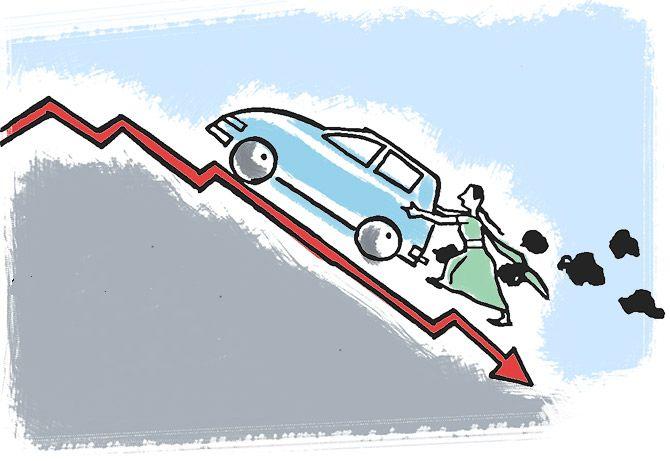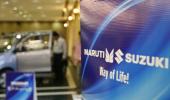July is expected to be better than June and things may improve from thereon as supply and demand get streamlined.

Auto sales, particularly of two-wheelers, may not bounce back immediately and may take another two months to come back on track even as car bookings have started seeing an initial uptick.
Various states started Unlock 2.0 on Monday, following a fall in the number of Covid-19 cases.
Auto sales were hit in May following the impact of Covid-led lockdowns.
Restrictions imposed by various states took a toll and derailed the recovery that had started from July 2020 after the first wave.
Executives at car companies and dealers are a lot more guarded in their outlook amid restricted operations and graded opening of states.
They are also sceptical of the so-called V-shaped recovery that one saw last time.
Market leader Maruti Suzuki, for instance, is seeing a positive response in terms of bookings and walk-ins, said Shashank Srivastava, executive director – sales and marketing.
As of Tuesday, dealerships in close to 20 states are open.
These account for close to 65 per cent of Maruti’s sales.
However, full sales potential is not being utilised, given the restrictions on the hours of operations, he said.
“While the overall trend is positive, it’s too early to say whether one will see a recovery as sharp as last time,” said Srivastava.
A spokesperson at Tata Motors said the company is “seeing a good traction in terms of bookings and walk-ins.”
July is expected to be better than June and things may improve from thereon as supply and demand get streamlined, he added.
Auto companies have been facing supply-side issues due to the shortage of semiconductors, plastics and a few grades of steel.
As a result, companies remain non-committal on the shape of the recovery.
Together, close to 40-45 per cent of the 26,000 automobile dealerships (in the country) opened on Monday, said Vikesh Gulati, president of Federation of Automobile Dealers Association, the apex body of dealerships.
The union territories and states that started unlocking on Monday, after being almost shut for over 45 days, include Delhi, Maharashtra, Rajasthan, UP, Chhattisgarh and one or two more states with some restrictions.
Typically, these 10,000 outlets cater to 700,000 to 800,000 vehicles (combined total of all categories), said Gulati.
The response on Day One was muted, he said.
“The walk-ins are less and the only people who are coming to the dealerships are the ones who were waiting to unlock.
"They are giving priority to other household issues and waiting for things to stabilise further.”
Meanwhile, two-wheelers, which were last to recover even after the first wave, may take longer to bounce back.
The reason for this is, unlike last year, rural India has been severely impacted this time.
“The kind of excitement one has seen in car dealerships in the last two days, is not being seen in two-wheelers," said Nikunj Sanghi, a Mahindra and Hero MotoCorp dealer in Rajasthan.
A dealer of a two-wheeler company said, “The dealerships were shut for almost two months and one was expecting something like pent-up demand. But that is totally missing as of now.”
He expects things to improve further in the coming days.
The two-wheeler segment has high dependence on rural sales.
Market leader Hero MotoCorp draws almost half its sales from rural India.
“There are forecasts of normal monsoon and crop realisation has also been better.
"However, sentiments have been dented as every second household has been hit by Covid,” said Gulati.












 © 2025
© 2025